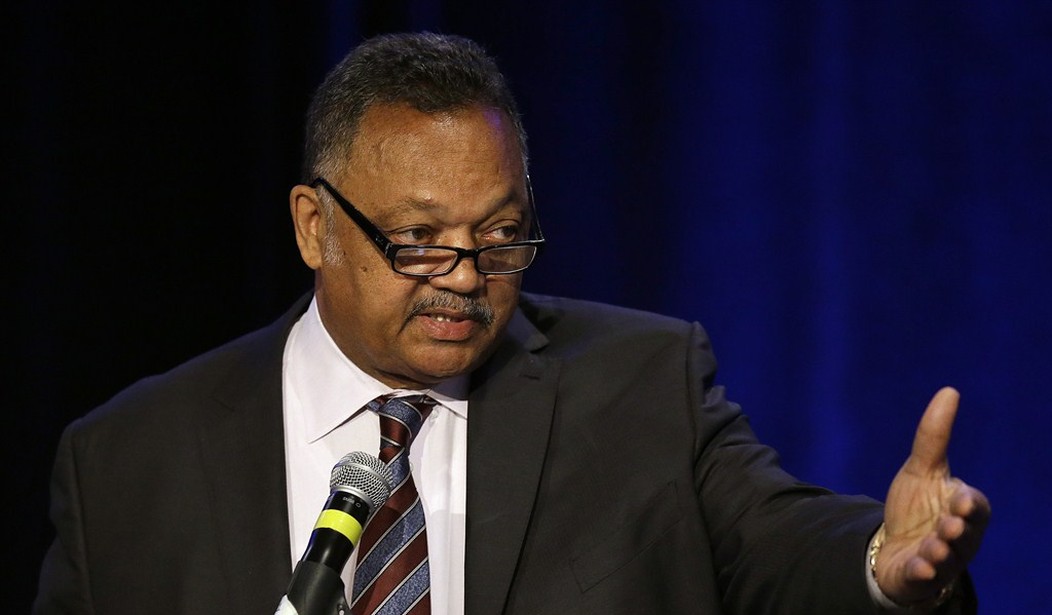Reverend Jesse Jackson, a former Democratic candidate for president and the leader of Operation PUSH for five decades, announced that he would step down as president of the Rainbow PUSH civil rights organization.
Jackson is one of the most consequential politicians of the last half-century. His advocacy for civil rights made him a beloved figure among blacks in Chicago, and his national imprint on Democratic Party politics was huge. In 1996, he merged his Operation PUSH organization with the Rainbow Coalition he formed during his 1984 presidential campaign.
Jackson announced in 2017 that he was suffering from Parkinson’s disease, which has severely limited his public engagements. His successor is expected to be announced at the 57th annual Rainbow PUSH Coalition convention on Sunday.
In recent years, he’s continued publicly advocating for civil rights and various political campaigns while leading Rainbow PUSH, headquartered at 930 E. 50th St., once the KAM Synagogue. Jackson’s regular Saturday morning session at his headquarters was for years a must-stop for local, state and national political figures. Jackson helped lead a 1983 voter registration drive that ultimately resulted in the election of Harold Washington as Chicago’s first Black mayor.
Jackson has been based in Chicago except for a break of a few years when he moved to Washington, where Rainbow PUSH had offices. There, he ran for and won a seat as one of the District of Columbia’s “shadow senators,” part of his drive for voting rights and statehood. On the media side, Jackson hosted a CNN show for eight years starting in 1992 and wrote a column for the Sun-Times.
Unlike many radical socialists and Communists in the civil rights movement, Jackson always had the ability to talk with those opposed to him. His Operation PUSH (People United To Serve Humanity) set as goals economic empowerment and expanding educational, business, and employment opportunities for the disadvantaged and people of color. PUSH used boycotts more effectively than any other civil rights group in the country. In the end, local and national business leaders respected him and his efforts.
Also for our VIPs: How Big an Impact Will the End of Affirmative Action in Higher Education Have?
Unlike many other civil rights leaders, Jackson tried to work within the system to advance his causes. In 1975, he founded Push Excel (for Excellence Inc.) to support students striving for excellence in education while also assisting them with job placement.
Jonathan Jackson said his father “has forever been on the scene of justice and has never stopped fighting for civil rights.” That, he said, will be “his mark upon history.”
Illinois Lt. Gov. Juliana Stratton said in a statement that Jackson “answered the call to serve and dedicated his work to letting it ring true, through decades of advocacy for the rights of our communities. As he steps down as president of the Rainbow/PUSH Coalition, may we take this time to reflect on his legacy in the journey for civil rights and liberty that have forever shaped our nation. I stand on the shoulders of leaders like Rev. Jackson, as a trailblazer and a powerful voice for a better tomorrow, and I wish him the best as he embarks on this new chapter. The state of Illinois will continue to cherish and preserve his passion in advocacy for justice for all.”
Jackson’s relationship with Jews was strained ever since he referred to New York City as “Hymietown.” He also called Israeli Prime Minister Menachem Begin a “terrorist.” His later apologies for those references rang hollow when he advocated for radical Palestinian positions.
Jackson has often been lumped together with race hustler Al Sharpton. Indeed, there have been issues where Jackson and Sharpton have vied for primacy. But Jackson has always been a different kind of black leader, far more willing to debate and engage intellectually with the right, as shown in his appearances on Bill Buckley’s “Firing Line.”
From the radicalism of his youth, Jackson grew into someone whom his political opponents could talk to. That’s what’s missing from today’s black-white dynamic, and Jackson disappearing from the public square will leave us poorer for it.










